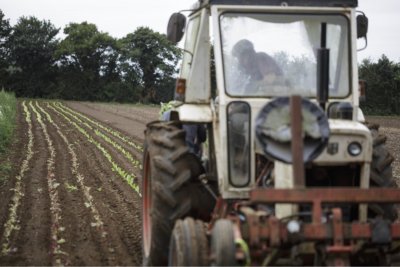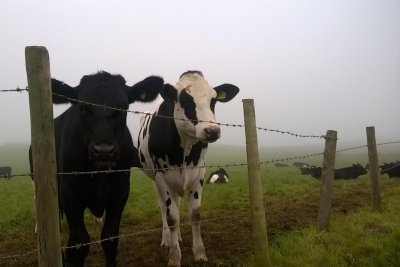News • Sustainable Farming Campaign
Sustain submission to MP Inquiry on Labour Constraints
Sustain submitted the following submission for the House of Commons EFRA Committee Inquiry into Labour constraints.
About Sustain: Written evidence submitted by Sustain: the alliance for better food and farming. Sustain advocates food and agriculture policies and practices that enhance the health and welfare of people and animals, improve the working and living environment, enrich society and culture and promote equity. We represent around 100 national public interest organisations working at international, national, regional and local level.
Since the EU Referendum, Sustain has been convening over 100 organisations to discuss the implications of Brexit for food, farming and fishing. All have expressed concerned with the impact of Brexit on farming, fishing and on food, and on the people working in this sector. There is an opportunity to change the way we regulate, support and manage our food system. On behalf of our members and associates working on Brexit, Sustain is campaigning to ensure that the opportunity extends to workers to have for more jobs and better jobs and livelihoods. The push for quality food needs to include quality in employment and benefits for those producing it.
We have spoken to a number of small scale producers in particular to provide insight and would urge the EFRA Committee to take oral evidence directly from this community to balance the views of larger scale producers.
Sustain has the following submission on your 1st and 4th questions:
1.Has the labour supply available to your business/sector improved or deteriorated in the past 12 months? What effect has this had on the economic performance of your business/sector?
Sustain is not a food producer, but we have connections with growers. We submit but have the following observations directly from SME commercial grower and other contacts:
- Some medium sized growers are extremely pessimistic about the potential for recruiting staff and have already cut back on investments and plans and reduced staff recruitment plans.
- Smaller producers (fewer than 10 staff) have seen less impact and see the nature of their production (sustainable, community linked, paying the real Living Wage) attracting enthusiastic and competent UK and migrant workers that want to stay.
- The suggestion that we need unskilled labour is misguided and we need to have migrant labourers who want to stay or to return year on year, will learn the skills, and can invest in a long term future here. The need is for a consistent number of ‘dedicated, educated, and positive individuals’. For small to medium sized businesses where deadlines are daily or even hourly and margins very narrow and produce perishable and prone to wastage where mishandled, these are critical issues.
- The demands now required of labour are incompatible with family life for the UK workers who historically used to undertake much of this work. In one instance a couple from Lincoldshire, who used to undertake seasonal, horticultural work at a time when it could be fitted in around, for example, school timetables and holidays, and other family life demands, but who said they could no longer do this work because the hours being required of labour (in response to 24/7 demands from retailers) no longer offered any flexibility.
- Very long hours and increased intensity of workload, where workers are being required to achieve and sustain very high speed and quality production, is not sustainable for anyone who is trying to live a normal life. Many migrant workers will have had to leave families behind in their home countries to work at low-paid, long hours jobs such as in horticulture, and hospitality (e.g. hotel domestics).
- There has been some investment for instance in robotic weeding to reduce casual staff needs but others suggest technology alone will not answer for all labour issues. When jobs are lost there are also major implications for local communities and economies, and lost tax revenue.
- The uncertainty about Brexit and future trading system with Europe and possible completion is extremely unhelpful and is already demonstrably harming business prospects.
Taking evidence from small and medium sized (SME) growers and those using sustainable production techniques, and closely linked to the local community and/or their market, would be highly valuable to this the EFRA Committee Inquiry into Labour Constraints.
4. In early 2017, the Government’s long-term policy aim was to make the agricultural, horticultural and food sectors “less reliant on migrant labour and use more UK workers”. Has there been any sign of successful Government action towards that objective?
1)Agriculture and wider policy
The following issues highlight a consistent lack of government concern for the agriculture workforce (especially in England) which has meant that we will need to draw on overseas workers (directly or indirectly by importing food) or technology (if available and affordable) to fulfil the needs of the sector:
- We lack an efficient and effective collective sector bargaining body for English agriculture workers. When the Government removed the Agriculture Wages Board (AWB) in England in 2013 they removed a fair and effective means by which farmers and land managers could agree annual wages, with grades and additional issues such as overtime, housing and sick pay. Wales and Scotland still have agriculture sector wage boards. The removal of the burden of negotiation allowed farmers more time to do other work and resulted in less conflict. Farmers now have to individually enter into negotiation with employees whom they have to work beside day to day. The uneven employment relationship is worsened by isolation. In the consultation to abolish the AWB, 63% of the responses did not support the abolition and this included farmers, landowners and many experts and including those working in rural communities. It would be worth re-reading some of the submissions from farmers to that consultation. Sustain strongly suggests that we need a new body for sector bargaining, with arbitration, for agriculture workers in England. Further along the food chain, sectoral bargaining bodies, based on trade union representation, would help drive up wages and standards, and hence make farm jobs more attractive and tenable to workers from a range of backgrounds.
- The new framework for supporting farmers for delivery of broad public goods as outlined by Secretary of State for Defra Michael Gove when the UK leaves the EU should include ensuring a baseline of worker wages (such as the real Living Wage in the absence of a sector negotiated level) and labour conditions as criteria for entry into the new support system. The new scheme should ensure that workers benefit alongside their employers from support that may include: business planning advice; learning and skills development for new cultivation techniques and technologies; capital to invest in equipment and infrastructure; access to land and accommodation; and investment in technology suitable for smaller scale farmers. We need measures tailored to workers as well as farmers such as new training on providing environmental goods on farm or local/regional marketing skills. Support could be tailored so that farmers that have a higher FTE per hectare gain an advantage (such as through a points system).
Workers should also be actively encouraged to respond to the consultation on the new policy via the upcoming consultation on the UK Agriculture Bill Command Paper.
- Fairer Supply Chain – The negative response from BEIS/DEFRA to the widespread calls for an extension of the Groceries Code Adjudicator was a major missed opportunity to begin to eliminate unfair trading practices in the whole supply chain. Such an extension would have helped eliminate unfair dealing in the supply chain, so helping farmers and growers to better manage their businesses and provide decent conditions for workers. We urge the Committee to propose a rethink of this decision. An integrated policy goal should be to deliver a real Living Wage or above to all working in the food system and this would be needed to deliver that goal. The key structural issues outlined above – where UK workers are unable to fit the kind of demands of the current 24/7 industry - around a decent home life need to be addressed.
- Promoting quality jobs via farm diversity and peri-urban food systems– evidence from across Europe and in the UK confirms that smaller farm holdings are more labour-intensive than larger ones. Recent work by Coventry University and the Landworkers alliance highlights how a diverse and vibrant sector of small farms is providing employment, attracting new entrants and incubating entrepreneurs. The authors also argue that an increase in the number of small, agroecological market gardens, especially in peri-urban areas, could help reduce the trade gap for fruit and vegetables, while providing pleasant and meaningful all year-round local employment for local people. Anecdotal evidence we have heard backs up this evidence. Furthermore, respondents in the survey suggested that the health and environmental advantages of vegetables and fruit being produced near to point of consumption and sold directly include freshness, less waste and potentially lower greenhouse emissions emitted in transport.
- Measuring workforce and enforcing standards - It is worrying that we do not precisely know how many work in agri-food in the UK. Criminality in the gang master sector is high given the potential gains to be made and the lack of enforcement of employment law. Looking at farming, according to Defra’s 2015 figures there are 476,000 people employed on agricultural holdings across the UK. Of these, they estimate 67,000 are seasonal. The NFU believe the data provided by Defra may be a significant underestimate. We need better measurement and far more resources to enforce labour standards to eliminate slavery and end worker abuse in the UK food system. A further consideration should be the numbers working overseas to provide food for the UK. Exposés on slavery in the food system are becoming increasingly frequent so we should ensure - via stronger modern slavery rules on action and reporting by companies - to ensure we are not using or importing food produced involving abused/slave labour. In addition we need to promote fair trade particularly in public food procurement.
2)Creating attractive and worthwhile employment
- The annual agricultural census from June 2016 – to June 2017 shows that the number of casual farm workers rose by 10.3% to 48,000. Regular full time workers fell by 3.7% to 45,000 employees. These figures confirm the trend towards increasing casualisation of labour and precarity in agriculture. Despite some rise in higher skilled contract work this reflects a trend towards poorly valuing farm work and this makes an unattractive prospect coupled with other issues such as isolation, housing and transport costs.
- Instead we should be putting value into farming work. We have been concerned for some time that an opportunity is being missed to use public and market tools to create an attractive employment option for UK workers in farming and land management. Sustain’s 2016 report Agriculture Labour in the UK with the Food Research Collaboration at City University London, highlighted the need to invest in better food production and marketing which creates rewarding employment, rather than simply promoting agri-technology and encouraging trade patterns that tend to import high-labour products and export low-labour products.
- We have yet to see reference to attractive and worthwhile labour in farming and land management as a core objective in the new UK agriculture policy (and Agriculture Bill). The opportunities presented by new sustainable farming systems (driven by a ‘public money for public goods’ policy) could and should create new jobs on farm, delivering new skills in agri-environment and conservation on and around farm; organic farming; marketing opportunities and growth in SME better food manufacturing for local and regional markets; as well as opportunities for new-entrant farmers. The rapid growth of the Landworker movement suggests a huge level of interest in working the land but also many barriers.[1]
- Issues of fair pay, progression and development, isolation, housing, hours, overtime, and holiday pay, and proper provision for sickness and retirement are all relevant and matter yet seem to be neglected in favour of ensuring narrow productivity gains. The poor health and safety record for agriculture is an added disincentive and should be addressed. There needs to be a significant reduction in health and safety failures in the farming industry.
- The BEIS Industry Strategy mentions the food sector and farming in the context of technological developments “By putting the UK at the forefront of this global revolution in farming, we will deliver benefits to farmers, the environment and consumers whilst driving growth, jobs and exports”. There is considerable emphasis on manufacturing and exports and relatively little on building capacity to farm domestically. The Strategy announced the formation of the new Food and Drink Sector Council which had its first meeting in January 2018. This group has a ‘Workforce’ work stream which is possibly a welcome focus but no details have yet emerged in the outcomes other than a focus on ‘skills’. . This feels inadequate from the outset to address the needs of farmers and farm workers.
- Wider action is needed to provide a stable and sustainable income for farmers through both delivery of public goods (subsidised by the public purse) and through the market place (for food and possibly other goods such as environmental services). The longer we fail to ensure that farm incomes reflect the true costs of production including decent, long-term rewarded employment, the greater the exodus we will see from farm communities and damaged rural economies and cohesion. We need fair deals throughout the food supply chain, regulated by an extended Groceries Code Adjudicator and other measures such as price transparency; and public support must pay for the public benefits of sustainable farming.
3)Conclusion
In conclusion, our experience suggests that we are facing a labour crisis in farming (mirrored also in other parts of the food sector, such as manufacturing, hospitality and foodservice), and that there has been insufficient government action toward that objective or towards making working in the agri-food sector attractive. Yet the opportunities are ripe for the picking to deliver better jobs and incomes in a new era of better agriculture, trade, food and environment policy.
February 2018
Contact: Vicki Hird MSc FRES
Farm Campaign Coordinator, Sustain
vicki@sustainweb.org Tel: 07903478249
[1] https://landworkersalliance.org.uk/2017/10/newdealforhorticulture/
Published Wednesday 28 February 2018
Sustainable Farming Campaign: Sustain encourages integration of sustainable food and farming into local, regional and national government policies.





